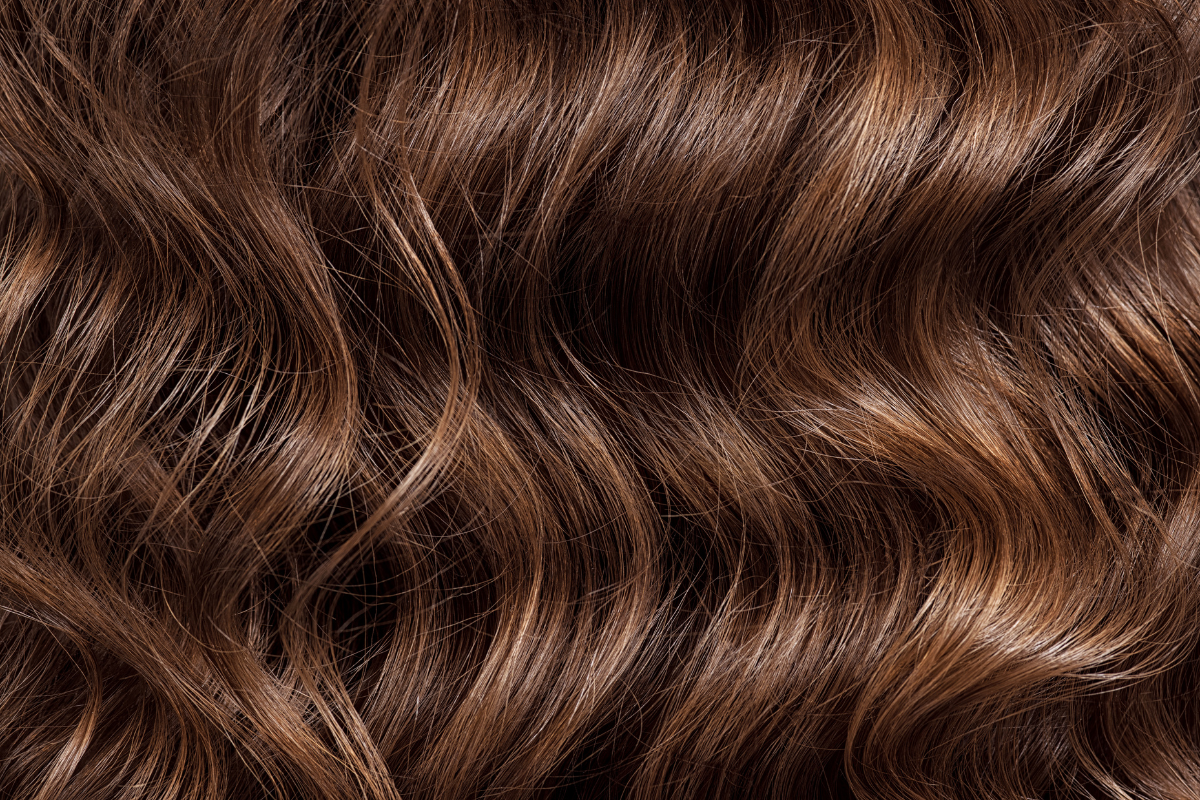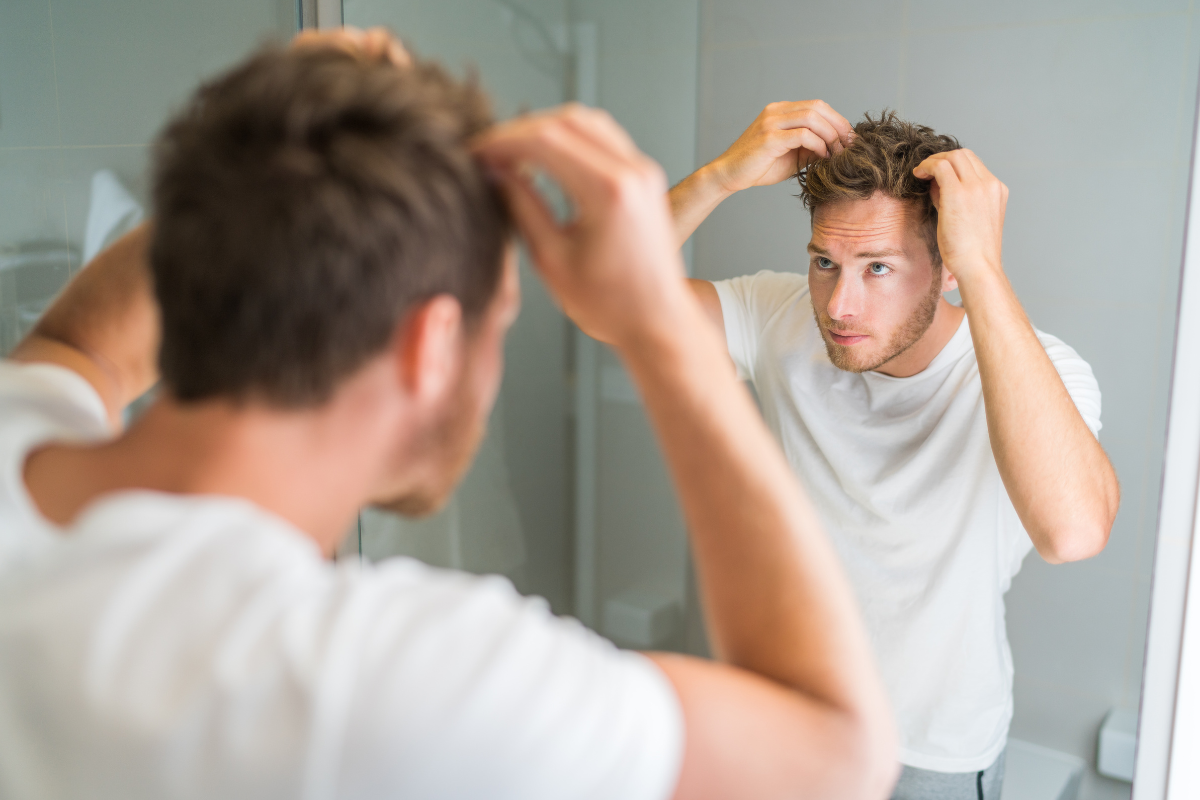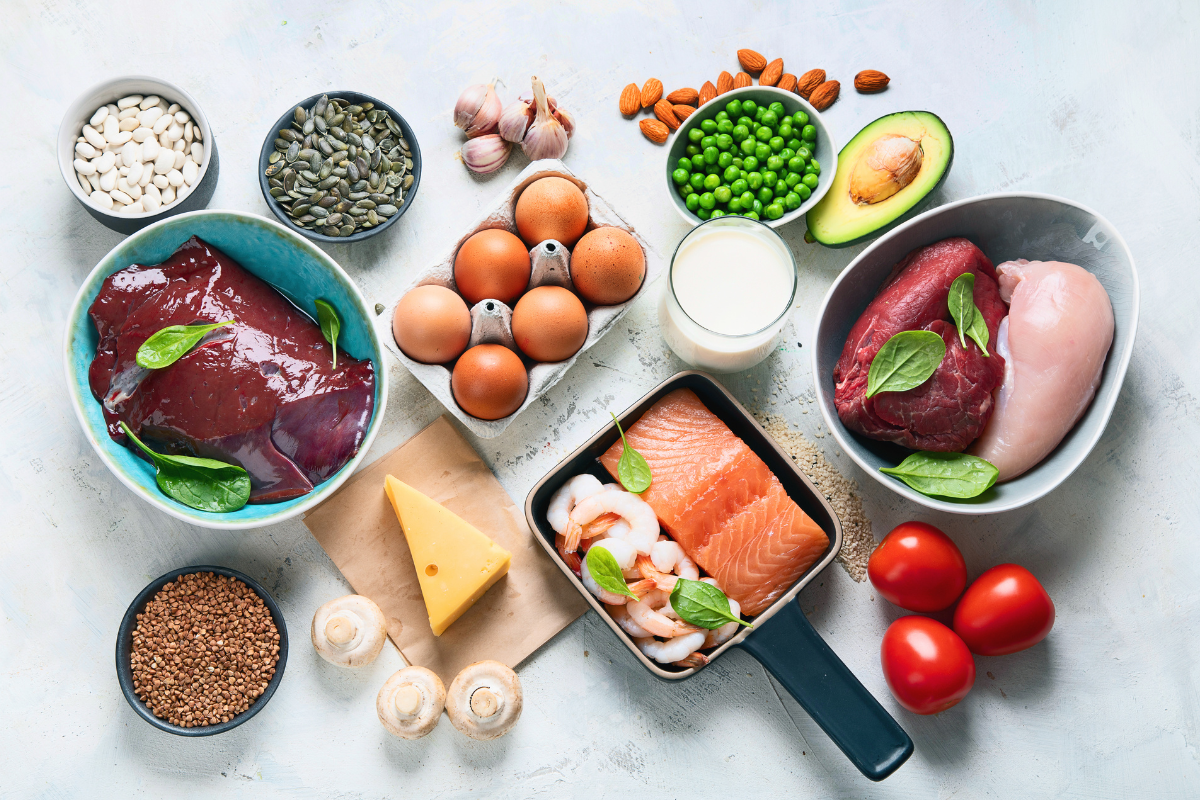Hair loss - vitamins & minerals

Hair loss - vitamins & minerals
Hair plays an important role in people's physical appearance and self-esteem, so falling out and thinning can be devastating, especially when there doesn't seem to be anything you can do about the loss.
But did you know that there are vitamins and minerals that are important for hair growth? In fact, poor nutritional intake, including vitamin and mineral deficiencies, is a common factor in hair loss. A good diet can fix the root of the problem, such as regulating your hormone levels or fighting oxidative stress that increases with age. If you are not sure what deficiencies you may have, then a blood test can be the first step in finding the cause of hair loss or thinning hair.
Approximately 55% of all women will experience hair loss and thinning hair at some point, while a majority of men will go through some type of hair loss in their lifetime. The hair care industry knows that consumers have a strong desire to look youthful, so they are constantly delivering new products that promise to promote thicker hair. But before you spend your money on yet another hair product that may disappoint you, you can try giving your hair the right conditions from the inside out, through a good diet and nutritional supplements, for thicker hair that grows optimally.
Which vitamins and minerals are best for hair?
The truth is that hair loss is a complex process involving various genetic, hormonal and environmental mechanisms. Just like our skin, the hair follicle is subject to both internal and external aging. Internal factors include our genetic and epigenetic* mechanisms, and external factors include smoking and UV radiation.
*Epigenetics is the part of genetics that deals with changes in gene expression or phenotype that are independent of changes in the DNA sequence. Epigenetics is about how DNA is read and how DNA is expressed.
Sometimes hair loss is also due to e.g. vitamin or mineral deficiency. Fortunately, a deficiency can be corrected by adding vitamin-rich and mineral-rich foods to your diet or by taking nutritional supplements . Some vitamins and minerals have antioxidant properties that help fight the external factors against hair loss, and some vitamins and minerals help the body balance hormone levels, which is another factor that can stop hair growth.
Try these healthy hair vitamins and minerals if you want thicker, fuller hair with less shedding:
Zinc for thick hair
Various zinc compounds have been used for decades to treat conditions such as telogen effluvium (hair loss) and alopecia areata (patchy hair loss), as zinc benefits hair follicle health. Zinc is an important cofactor for several enzymes and is involved in important functional activities of the hair follicle.
Zinc is also a potent inhibitor of hair follicle regression, and it speeds up hair follicle recovery. Studies indicate that some alopecia areata patients are zinc deficient and taking zinc from dietary supplements is an effective treatment.
In a 2013 study, researchers evaluated the role of zinc status in each of the four types of hair loss, including alopecia areata, male pattern baldness, female pattern baldness, and telogen hair loss. In all alopecia patients, the mean serum zinc level was significantly lower than the control group. The analysis of each group showed that all groups with hair loss had statistically lower zinc concentration, especially the alopecia areata group. The data led to the hypothesis that disturbances in zinc metabolism play a key role in hair loss.
If you think your hair loss is due to a zinc deficiency or other measurable causes, you can check this with a blood test done in collaboration with our partner BLODKOLLEN . We offer WOMEN'S LARGE HAIRBOLT and MEN'S LARGE HAIRBOLT.
Biotin for thicker hair growth
Biotin (vitamin B7) has long been used as an alternative treatment for hair loss. Biotin benefits your hair by rebuilding hair that has been damaged by over-shampooing, sun exposure, blow-drying and straightening.
A strong sign of a biotin deficiency is hair loss. A deficiency can be caused by smoking, impaired liver function or even pregnancy. Research suggests that many women develop a biotin deficiency during a normal pregnancy because the rapidly dividing cells of the developing fetus require biotin for various processes.
To counteract hair loss and increase hair strength, it is good to take a B vitamin complex daily, or to take biotin separately. Eating foods rich in biotin, such as eggs, beef, chicken, avocados, legumes, nuts and potatoes, also helps avoid a deficiency and promotes hair growth.
Vitamin C for hair
Experimental evidence suggests that oxidative stress plays an important role in the aging process. Free radicals are highly reactive molecules that can directly damage cellular structural membranes, lipids, proteins and DNA.
With age, the production of free radicals increases and the amount of antioxidant enzymes that defend the body decreases, which leads to damage to cellular structures and aging of the hair. By acting as an antioxidant, vitamin C fights oxidative stress that contributes to gray hair and hair loss.
To fight free radicals and protect hair from aging, load up on vitamin C-rich foods like oranges, red bell peppers, kale, Brussels sprouts, broccoli, strawberries, grapefruit, and kiwi. If you need a dietary supplement , take 500-1000 milligrams of vitamin C twice daily, for the best antioxidant effect.
Iron prevents hair loss
Several studies have investigated the relationship between iron deficiency and hair loss, and some suggest that iron deficiency may be related to alopecia areata, androgenic alopecia, telogen effluvium, and diffuse hair loss.
Researchers at Tehran University of Medical Sciences in Iran studied the relationship between the body's iron status and different types of hair loss. They conducted a study to assess whether diffuse telogen hair loss in women between the ages of 15 and 45 is associated with iron deficiency - 30 women with documented telogen hair loss were compared to 30 women without hair loss.
The researchers found that, of the nine patients with iron deficiency anemia, eight had telogen hair loss. Mean ferritin levels (a protein in the body that binds to iron) were statistically significantly lower in patients with diffuse telogen hair loss than in subjects without hair loss. The study suggests that women with iron deficiency have a higher risk of hair loss, and serum ferritin levels below or equal to 30 milligrams/milliliter are strongly associated with telogen hair loss.
To promote hair growth, make sure to eat foods that contain iron in your diet every day. Eat lots of spinach, egg yolks, beef and beans. Since an iron deficiency can lead to hair loss, make sure you get your daily recommended amount by eating iron-rich foods.
However, be careful about taking a food supplement with iron , unless you have been confirmed to have an iron deficiency. People who do not get increased iron levels in their body from food or supplements should undergo further testing to identify other underlying causes of iron deficiency and hair loss.
If you think your hair loss is due to an iron deficiency or other measurable causes, you can check this with a blood test done in collaboration with our partner BLODKOLLEN . We offer WOMEN'S LARGE HAIRBOLT and MEN'S LARGE HAIRBOLT.
Vitamin D vitamin contributes to healthy hair
The hair follicles are very sensitive to hormones, and vitamin D is a hormone that plays an important role in calcium homeostasis, immune regulation, cell growth. In the scientific world, it is well known that alopecia areata is common in patients with vitamin D deficiency. Vitamin D-resistant rickets or vitamin D receptor mutation.
Research suggests that insufficient levels of vitamin D are involved in a variety of autoimmune diseases, including alopecia areata. A cross-sectional study with 86 patients with alopecia areata, 44 patients with vitiligo and 58 healthy controls was conducted. Serum vitamin D-25-OH levels in the patients with alopecia areata were significantly lower than in the patients with vitiligo and the healthy control subjects. In addition, a significant inverse correlation was found between disease severity and Vitamin D-25-OH serum levels in the patients with alopecia.
Researchers concluded that screening patients with alopecia areata for vitamin D deficiencies appears to be of value in order to prescribe a dietary supplement with vitamin D to these people.
Direct sun exposure is the best way to absorb vitamin D. Expose your skin to the sun for about 10-15 minutes to absorb about 10,000 IU (250 μg) of natural vitamin D. To increase your vitamin D levels from foods, you can benefit from eating: halibut, mackerel, eel, salmon, whitefish, swordfish, maitake mushrooms and portabello mushrooms.
If you think your hair loss is due to a vitamin D deficiency or other measurable causes, you can check this with a blood test done in collaboration with our partner BLODKOLLEN . We offer WOMEN'S LARGE HAIRBOLT and MEN'S LARGE HAIRBOLT.
Folic acid (folate) can reduce hair loss
Lack of folic acid (vitamin B9) can lead to hair loss and thinning hair, making it an important ingredient in hair supplements. Dietary supplements with folate/vitamin B9 often contain other ingredients such as biotin that also support hair health. Folic acid can also reduce the rate of premature graying of hair.
Vitamin B12 (cobalamin)
Vitamin B12 deficiency can lead to excessive hair loss. Vitamin B12 plays an important role in hair growth. When the body lacks this important nutrient, it can disrupt normal follicle function and cause excessive hair loss.
In addition to the above vitamins and minerals, it can also be good to review your intake of omega-3 fatty acids!
Fish oil for beautiful hair
Oils rich in different types of fatty acids have been used extensively in both animal and human studies to evaluate the effects on skin and hair health. Omega-3 fats nourish the hair, support thicker hair and reduce inflammation that can lead to hair loss.
Eat foods rich in 0mega-3 fatty acids; such as salmon, mackerel, tuna, white fish, sardines, egg yolks, walnuts and hemp seeds, to reduce inflammation and balance your hormones. If you don't eat enough foods that contain omega-3 fatty acids, then you should look for a first-class fish oil supplement to reduce inflammation in the body that causes hair diseases.
If you take blood-thinning medications, including aspirin, talk to your doctor before using fish oil because it can increase bleeding.
- Tags: Hår/Hair Kollagen/Collagen






